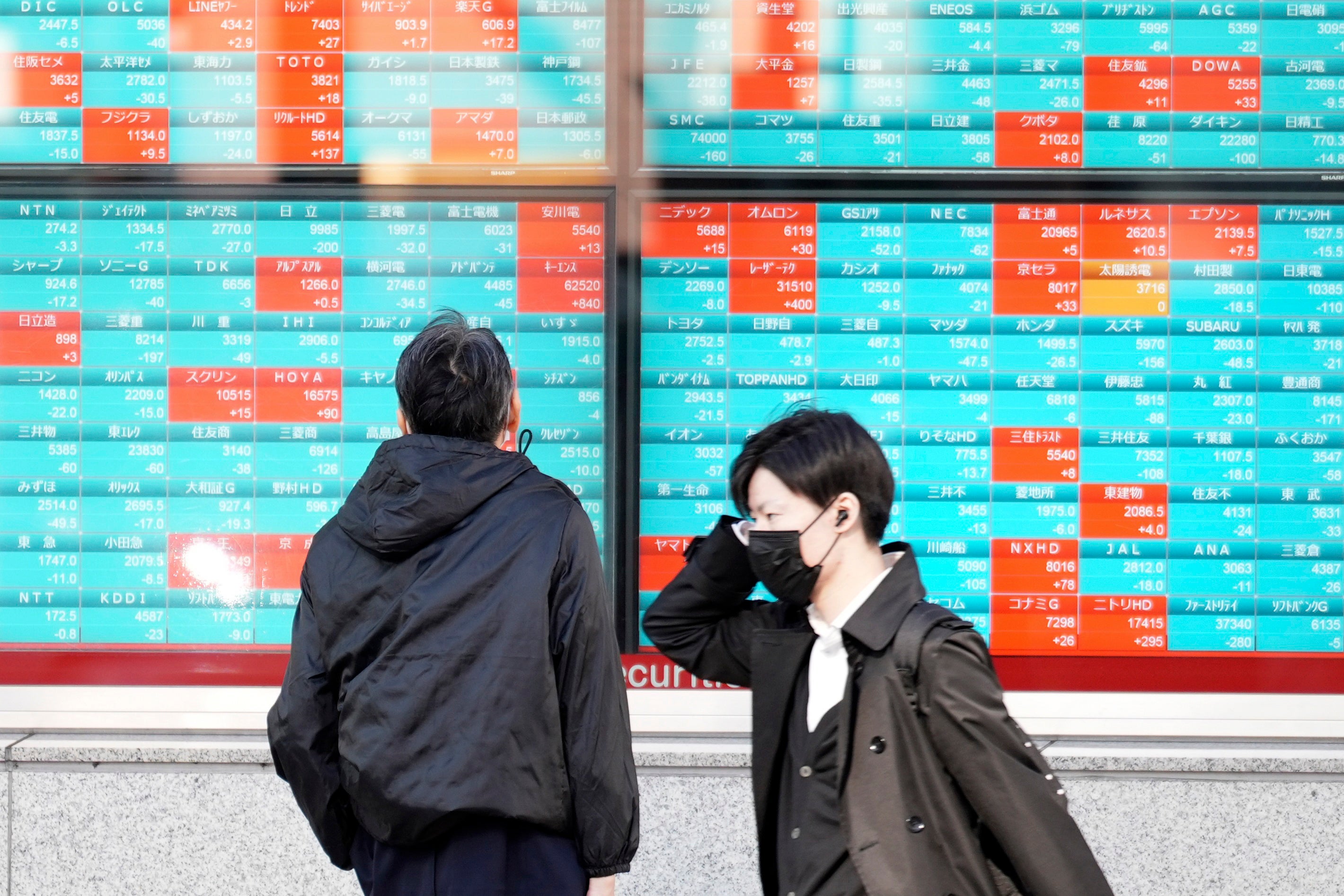Stock market today: Asian markets advance in holiday-thinned trading but Chinese shares slip
Asian markets are mostly higher in holiday-thinned trading, with some markets in the region closed for holidays

Asian markets were mostly higher in holiday-thinned trading on Tuesday, with some markets in the region closed for holidays.
U.S. futures and oil prices edged higher.
Shanghai’s benchmark led losses in Asia on heavy selling of technology and computer chip-related shares as worries revived over trade tensions with the U.S. and other western countries.
The Shanghai Composite index sank 0.7% to 2,898.88. In Shenzhen, where relatively more high-tech companies are listed, the A-share index lost 1.2%. Semiconductor-related shares fell 2.7% while consumer electronics shares lost 2.4%.
Tokyo's Nikkei 225 gained 0.2% to 33,305.85. In South Korea, the Kospi added 0.1%, to 2,602.59. Bangkok’s SET rose 0.3%. Taiwan's Taiex gained 0.8% and the Sensex in Mumbai was up 0.3%.
Markets in Australia and Hong Kong were closed.
Japan’s unemployment rate remained stable at 2.5% in November, according to government data released on Tuesday. The job-to-applicants ratio experienced a slight easing, settling at 1.28, indicating there were around 128 job opportunities available for every 100 applicants.
On the other hand, Japan’s services producer price index, which measures the costs of goods and services provided by businesses to other firms and government entities, held steady at 2.3% in November. This indicates a gradual pass-on of rising labor costs and potential for sustained wage gains, supporting the Bank of Japan’s 2% inflation target.
U.S. and European markets were closed on Monday and some in Europe will remain closed for Boxing Day. On Friday, Wall Street closed its eighth straight winning week with a quiet finish following reports showing inflation is on the decline even as the economy appears stronger than expected.
On Friday, the S&P 500 rose 0.2% to sit less than 1% below its record set nearly two years ago, at 4,754.63. The Dow slipped less than 0.1% to 37,385.97, and the Nasdaq gained 0.2% to 14,992.97.
With its eight straight weekly gains, the S&P 500 is in the midst of its longest winning streak since 2017.
In other trading on Tuesday, a barrel of U.S. crude picked up 8 cents to $73.64 per barrel in electronic trading on the New York Mercantile Exchange. Brent crude, the international standard, was up 12 cents at $78.92 per barrel.
The U.S. dollar rose to 142.35 Japanese yen from 142.33 yen. The euro rose to $1.1024 from $1.1016.